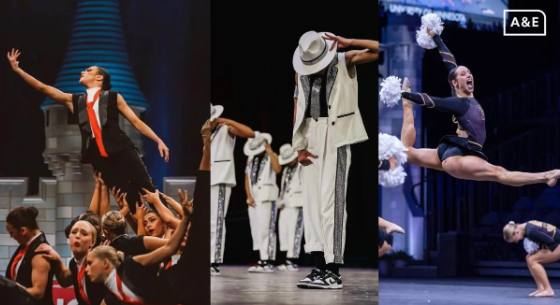Opinion: Listen. Learn. Attend. Acknowledge. Act.
March 11, 2021
I often find myself at a loss for words when I encounter the topic of racism in conversation. I have limitless feelings of embarrassment and disappointment, which are barely enough to describe the current racial environment of our country. I’m embarrassed that there are people who discriminate on the basis of race. I’m disappointed that there has been little done to fix this disgusting issue. I have so much to say, so much about white privilege and how it must be acknowledged, and about how I will never understand but I want to learn. Yet, when it comes up, I don’t know what to say.
Recently in our Advanced Journalism class, we watched a remarkable recollection of a Capitol police officer’s experience on January 6, 2021 (https://www.youtube.com/watch?v=2jgEUko5ph8 ). I watched this video in shock and simultaneously with a feeling of pride for the people in our country, like this officer, who are fighting for good. This police officer, while defending the U.S. Capitol, had racial slurs thrown at him, which progressed to an even bigger stream of yells from the crowd when they found out he had cast his vote for President Biden. These rioters, ironically, as one of my fellow newspaper co-editors remarked, held Blue Lives Matter flags and claimed they were “doing this for him [the officer].” My feelings at that moment can only be described as explosive; yet, I found myself stuck as I tried to articulate my feelings into words.
This officer’s specific experience can be attributed to racism. Since the United States of America was founded, racism has been ever-present; even worse, now our country is seeing this every second, every minute, every hour, and every day to many individuals and groups. A horrifying shadow has been cast on our country, amplified by COVID-19. How has it become so bad?
The topic of racism is a difficult one, but I don’t want to avoid uncomfortable topics. I can’t avoid them, because they need to be discussed. As a student journalist, and with my Lobby Observer staff, our voices and perspectives are put out on our website and on our social media for many eyes to see. I realized that something we as a staff are missing, and maybe even we as a student body (and if I were to go farther, we as white students) is the ability to sit back, listen, and learn to target these issues in a just way.
So, I’ve found myself at a pivotal moment in my growth as a student, a journalist, and single member of our society: What can I do? How do I approach this topic? Or even more, approach it in a way that ignites change?
Firstly, I can admit that I have been raised in a society that has afforded me white privilege whether I asked for it or not; I feel unprepared to talk about these issues without further education. It’s okay to admit this. It doesn’t make me racist, unsympathetic, or self-centered. I won’t be in a position to feel fear invoked by the sheer presence of a police officer. I can’t relate to the hurt caused by our former president addressing COVID-19 as a racist nickname. I will never understand why, deep down, we can’t all sit back and realize the color of our skin is simply a biological way of showing beautiful ethnicities and differences among people.
But I want to learn, grow, and use my voice. And I encourage you to find yours. Our voices are our most powerful tool.
I may not understand by experience, but I can attempt to understand through listening and learning. Talk to people from all different backgrounds, and acknowledge the systemic issue of racism. Attend seminars. Open up your mind to what’s outside of your world, and be present. Take action. Write to Congress about certain laws. Encourage anti-racism education among your peers. Acknowledge and recognize that we, as white people, may never fully comprehend. But we can do our part.















